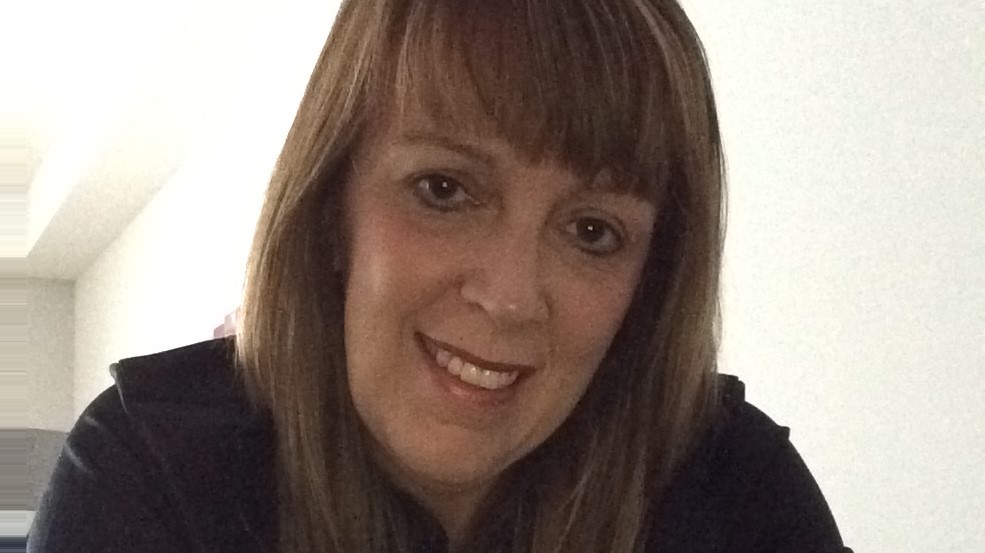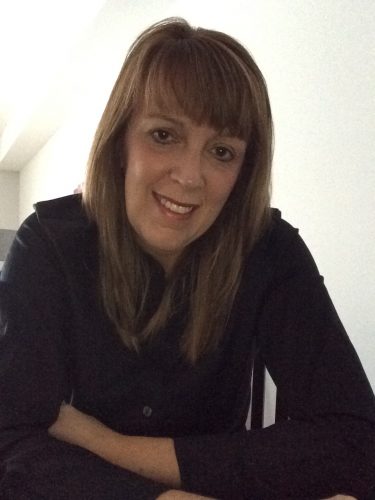Mental Health
Q&A: What is compassion fatigue?
Mental health expert Caroleann Simmons explains

caption
Caroleann Simmons runs Dreams Driven Consulting out of her Cole Harbour home.
caption
Caroleann Simmons runs Dreams Driven Consulting out of her Cole Harbour home.You may think your job is tiring, but those in helping professions may need more than a good night’s sleep.
Caroleann Simmons has been working in the field of compassion fatigue for more than eight years. Originally working with Military Family Resources for the Department of National Defence, Simmons saw a gap in services in the civilian world. She now runs her own business, Dreams Driven Consulting, out of her home office in Cole Harbour, N.S.
Originally from Newfoundland, Simmons has a background in human resources and business administration. She says she is one of the only consultants in Atlantic Canada training people to recognize and treat compassion fatigue, a term that has recently become a buzzword in the mental health community.
The Signal met with Simmons to learn more about what she does and how it relates to self-care, the holidays and “the sandwich generation.”
Can you explain a little more about compassion fatigue and some of the symptoms?
Everybody brings something different to the table. When we look at compassion fatigue, I like for people to identify in themselves what’s different about them. You know, how do I relate to all of these different situations that I’m dealing with and how has it changed me? So, it could be insomnia, it could be irritability or exhaustion, it could be increased other medical conditions because we’re not feeling well.
We look at psychological factors of how people are affected, we look at behavioural patterns. I think about signs and symptoms and learning to know yourself so well that you can identify when you change, when your personality changes (and) when your reaction to different situations changes. We teach real life symptoms, so that I can help every participant in the class build a personal self-care repertoire so that they can identify: ‘Okay, what’s it like for me?’
Who is most affected by these symptoms?
Well, it affects anybody in the helping profession. It affects front line workers; we look at EHS staff, police officers, social workers, psychologists, anybody in the medical profession, doctors, nurses. It affects anybody in a profession where they’re impacted by other people’s lives, listening to others difficult stories, hearing the difficult things that people are going through.
How long does it take for someone to start to experience fatigue?
It goes right back to the individual, to what you bring to the table. If you’ve experienced trauma in your own world, you’re going to be more susceptible to this type of thing. Other people go their whole careers (without experiencing fatigue) and they have really good resiliency skills. They use some of the things that we talk about and don’t even realize that they’re using it. Some of us handle things completely different than others, so it’s really hard to pinpoint how long it would take for somebody to be affected. What I like to say is it’s not about if we’re going to be affected by the work that we do as helpers — it’s about when — and (having) the self-awareness to be able to identify when you’re stepping into that danger zone.
Are people more likely to be affected at certain times of the year?
When you think about holidays, especially Christmas time, it’s an emotional time of year. When you think about military members and Remembrance Day, these are the types of holidays that I think are emotional anyway. But when we look at it, it’s very individual. So, it could be an anniversary of anything and when we look at compassion fatigue now, I think of the sandwich generation.
What’s the sandwich generation?
Right now, I have my daughter is living with her own family and my son is the same way, but I also have my own mother who is almost 80 years old. I’m in the middle; that’s the sandwich generation. When we look at the baby boomers right now, they’re really in the sandwich generation because we still have our own families. Some people still have children living at home, so you still have all those stressors that add to everything.
How can people start to get help if they realize they’re experiencing some of these symptoms?
The training is really good for organizations as a whole, if an organization or a union noticed that their members were really struggling. If there was a lot of sick time and increase in absenteeism or presenteeism — and what I mean by presenteeism is you’re there but you’re not there. We see that often people are just not able to concentrate on the work they do. An organization could bring me in and we start from the top down and everybody will go away with the same message. They start to look after one another. I (also) talk about an “I” in team. For years, we’ve been saying that there is no “I” in team, but you need to be present and look after ourselves to be the best part of a team.
Is compassion fatigue something that people can overcome?
Some people are really, really good at identifying the triggers and being able to say this is what I’ve identified as my own personal signs and symptoms, so I need to now do some work to get back to that healthy state. Personally, I think that people will be affected by it on a continual basis if they don’t look after themselves. But by understanding that yes, I can continue my work; I can continue to live a healthy life just by making sure that I’m self-aware enough to be able to identify those triggers and be able to look after myself more. People are very resilient and the stronger your resiliency skills are, the more things you have in that toolbox to be able to identify what you need at any given time. I think yes you can recover from it.
Are there any exercises you can share for people to help identify their symptoms?
I think about situations where someone tells you that you need to do breathing exercises, you need to do yoga or different kinds of things that somebody identifies for you as self-care. My biggest thing advice to people is to find those moments when you have very little stress in your life, when you’re doing something and you feel it’s only been ten minutes, but it’s been the whole afternoon and you’re just caught up in it emotionally, enjoying every minute. Whether it be painting or fishing, these are the things that you need to identify as individuals to be able to replenish you. As a facilitator and educator for compassion fatigue, I can’t tell you exactly what you need. It’s about the self-awareness and being able to identify exactly what you need as an individual.
This interview has been condensed and edited for clarity.
About the author

Victoria Walton
A 4th year journalism (BJH) student at the University of King's College, Halifax. Combined honours with International Development Studies. Interested...
